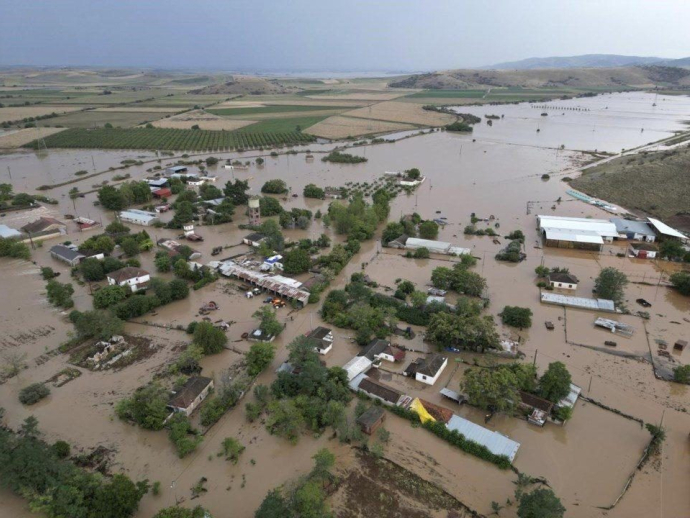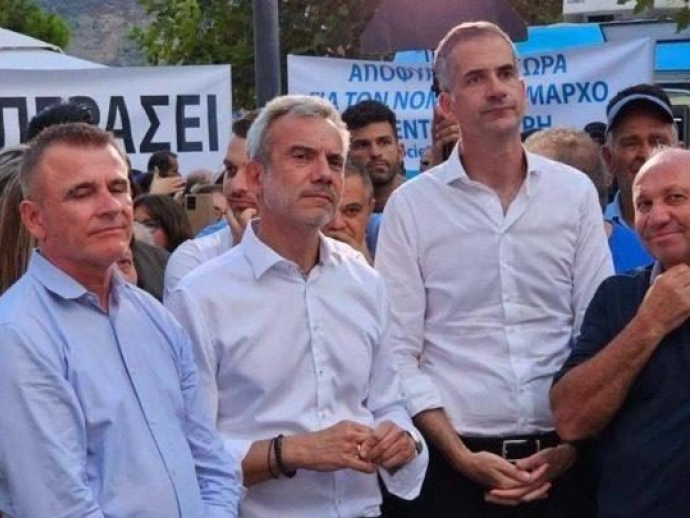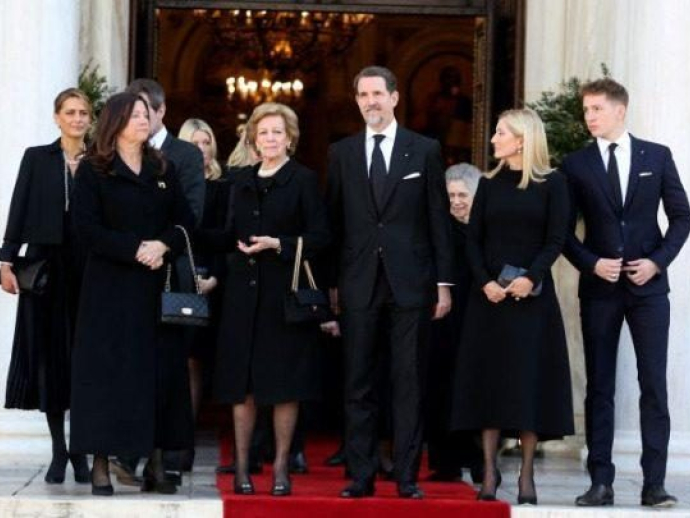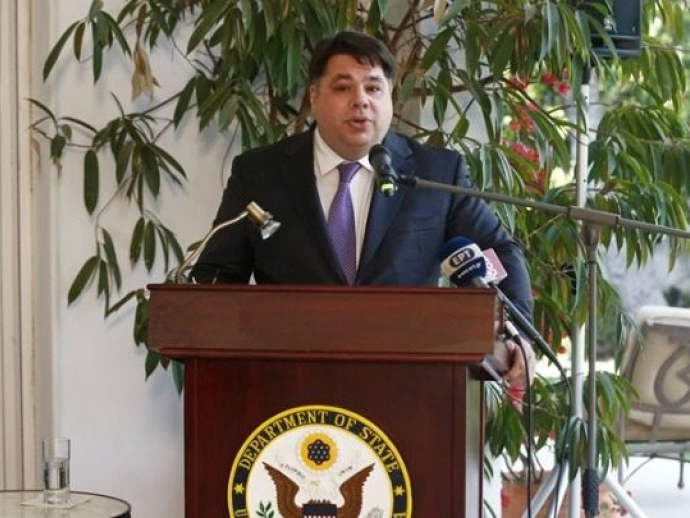POESY conference: The need to regulate AI and its impact on labor relations
The conference also dealt thoroughly with the risks of applying artificial intelligence (AI) in labor relations in the media, and was broadcast live by the Athens-Macedonian News Agency (ANA-MPA).
Galamatis referred to a "monumental moment in human history, as AI has led to incredible developments." At this time, he added, "We must approach the regulation of AI with foresight, integrity and a firm commitment to the well-being of humanity. A well-designed regulatory framework can ensure that AI acts as a force for good, propelling us toward a future where innovation thrives in harmony always with ethical considerations."
SYRIZA-Progressive Alliance Eurodeputy Kostas Arvanitis stressed that "the controversial issue is how many people will be left, and what will be the role they will play. If we judge by how the spread of digital technology and the Internet has eliminated so many jobs in the media, AI can go one step further, to signal a job obliteration in the media sector." Arvanitis made three proposals: breaking up the concentration of media control by large publishing groups; the radical redefinition of rules in the media landscape, including ethics, work and personal safety of all press employees, editorial independence, and establishment of effective and deterrent community mechanisms in cases of misinformation. He added also the continuous boosting of transparency in systems, cybersecurity systems/data and actions of civil society systems and cybersecurity systems strengthening of the transparency of cybersecurity systems and data and of the action of civil society, leading to building a social counter-intelligence against the wave of misinformation and the deceitful fragmentation of information.
ANA-MPA President and General Director Aimilios Perdikaris stressed that "the great fear is the creation of a new work environment". As he explained, "The reality we cannot deny at this moment is that there are truly cases where AI is doing our job, but no humans have been substituted." He stressed that "we have to face with courage and preparedness the reality that many of us want to move on to education, training, learning, and even change of specialty, for some; (...) That is why we must open the discussion immediately, because if our field is to change, it would be good that it changed with us, not without us." In this effort, he announced that ANA-MPA will go ahead with the creation of a series of videos and other interventions that will explain in simple terms to society what AI is, "mainly to defeat fears and turn them into a driving force, so that we can use technology and AI for the benefit of society itself and not turn it against us."
Referring to whether AI will affect jobs in the media, Internet Publishers Association (ENED) Vice-President Dimitris Iliopoulos asserted that this would be 'impossible' to happen: "AI, no matter how smart we think it is, has structural limitations, compared to humans. The most basic one is that it cannot create. It can synthesize, but it cannot create [new content] on its own, and therefore it has no judgment like a human does, and cannot evolve."
In the same vein, the director general of the Association of Private Nationwide Television Stations (EITESEE) Konstantinos Kibouropoulos responded to the question of AI's effect on media that "the human factor should always put up an appropriate resistance. There is no other way." However, he raised concerns about "how uncontrollable the accumulation of the power of knowledge can become, but also how the achievements of a civilisation that has humanity as its central focus will not be threatened."
Ionian University ssistant professor Valia Kaimaki stressed among other issues that "the problem is not the machines, but the fact that the development of AI comes at a time that is already very stressful for the journalistic world, where no one wants reliable journalism: governments because it bothers them, and publishers because it is expensive. At the same time, we don't have an audience supporting us, because we have been experiencing a huge crisis of credibility for at least two decades if not longer."
President of the Association of Journalists of Periodical and Electronic Media (ESPT) Themis Beredimas noted that "technology has been changing journalism and labor relations for decades, and it is certain that new applications of AI will again bring massive new changes and challenges, and no one can at this stage predict with certainty whether the balance of AI implementation will be negative or positive for employees." He added that opportunities will emerge to increase the productivity of workers and businesses, create new tasks and occupations, and improve the quality of work. That however will bring new challenges to be regulated in terms of quality of work and the role of people at work. "The world of work must prepare itself by investing in adaptation to the new data and the new conditions that will emerge," he stressed.
Vassilis Vassilopoulos, a PhD in media governance, noted among other things that "there is a significant issue in terms of who holds responsibility, and when you use information systems there is the General Data Protection Regulation. AI should be regulated in the same way that information system engagement is regulated, when AI is used in journalism."
Concluding, journalist Nikos Eleftheroglou commented that "in every transition, futurists put out eulogies about the death of the media sector. Reality has proven them wrong, and I hope that in this case it will prove them wrong again."




























































































































































































































































































































































































































































































































































































































































































































































































































































































































































































































































































































































































































































































